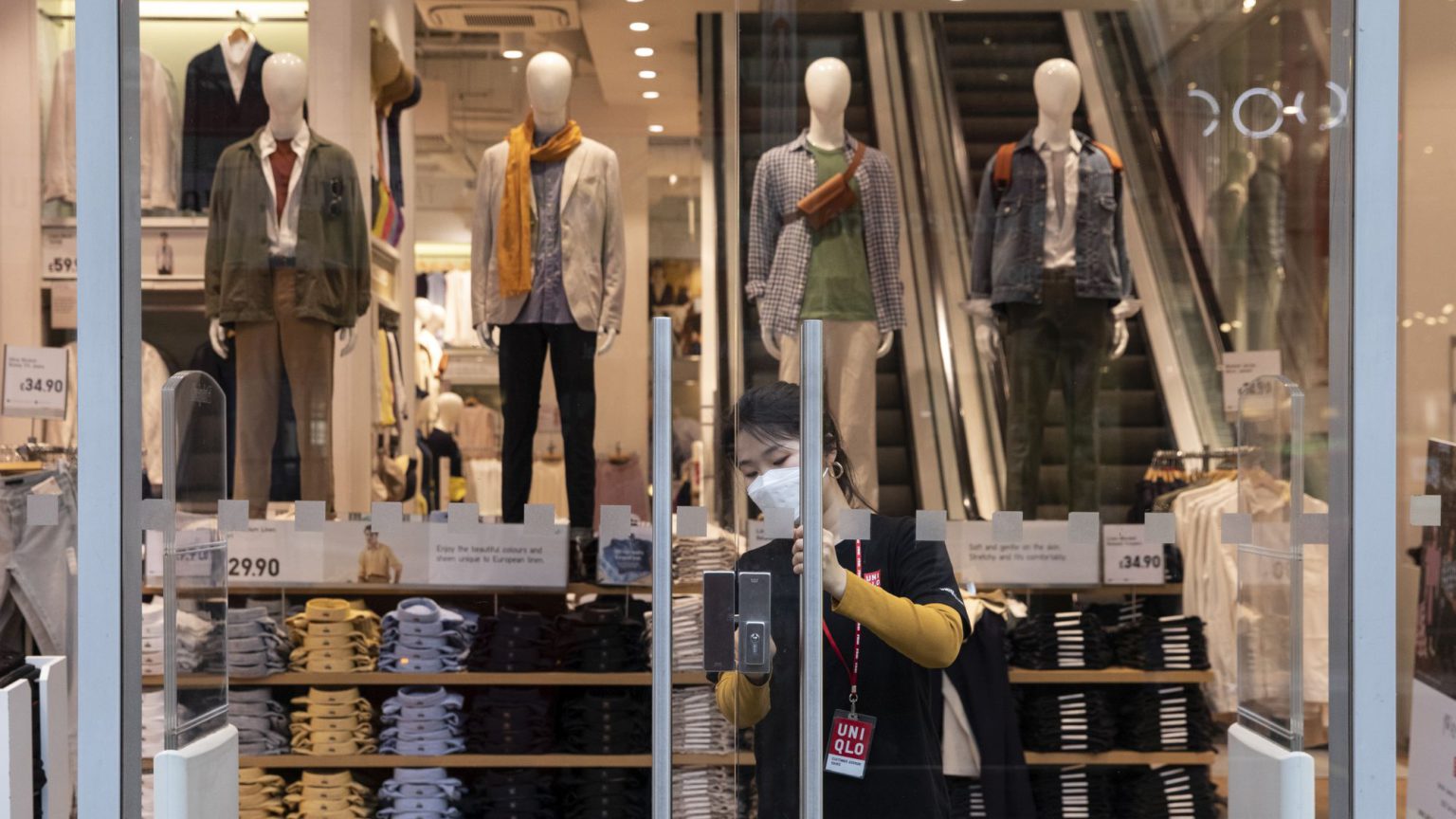The coronavirus cash crunch
This recession is affecting strong and weak firms alike.

The UK Treasury’s number one priority, with support from the Bank of England, must be to get unlimited money swiftly to businesses and individuals who are losing income because of the government’s coronavirus containment measures. This applies both to providing firms with cash to avoid bankruptcy as well as to ensuring that all their staff – employed, self-employed and gig workers – continue to be paid when they go into unpaid quarantine or are laid off either temporarily or permanently.
But however successful the government is in this vital support task, the British economy is already in recession. And the more extensive the lockdowns are, the deeper the immediate falls in economic activity will be. Some of the lost enterprise will be compensated after the pandemic by the ramping-up of production. Some will be irrecoverable: not all the abandoned cinema, concert and theatre outings, restaurant meals or travel will be made up later.
Long before the Covid-19 outbreak many economists had been correctly anticipating another downturn. This has nothing to do with Brexit, either. Britain, like most other advanced industrial countries, has been in a state of precarious sclerosis ever since the stabilisation which followed the financial crisis. Western economies have been producing too little new wealth for decades. They were only functioning as well as they have been by borrowing from the future. Now this precarious, debt-dependent economic life has suffered a sharp and unexpected disruption.
The collapse is largely due to a cash crunch. At the moment this is primarily a cash-flow recession, rather than a ‘balance sheet’ recession or a classic ‘crisis of profitability’. Rarely has the ‘cash is king’ adage been more apposite. Hence, the ubiquitous search for liquidity, and the strange happening of gold – a traditional safe haven in a crisis – falling in price. Some institutions are selling everything they can, including gold and ‘safe’ government bonds, to obtain cash.
Journalists and analysts have already begun to speculate over the longer-term economic consequences of this recession. Some ponder if there could be any economic upside from this health crisis and human tragedy. For instance, part of the froth has already been blown away in the financial markets. For years, equity markets have been pushed up and up, courtesy of easy monetary policies.
Many recognised this as a bubble waiting to burst. Now, after falls of about 30 per cent, with possibly more to come, lots of company shares are perceived to be ‘fairer’ priced. Financial Times columnist John Plender flagged this up as ‘good news’ because ‘risk is no longer as seriously mispriced as it was earlier’. It is suggested this shift could ameliorate one source of financial instability – even though it comes at the expense of devastating many people’s pension funds.
Similarly, loose central-bank policies had for years blurred the distinction between corporate debt issued by strong and by weaker firms. Now prices and yields have started to discriminate a little bit more between companies with different prospects for survival or failure (subject to the common drive for institutional liquidity). Some conjecture that such alleviation in asset ‘mispricing’ might assist the better allocation of resources after the recession is over.
A few commentators are going further and wondering whether this whole affair could act like a world war in forcing economic transformation. Even if things don’t go quite that far, the destructive implications could still be profound. For instance, Marc Ostwald, chief economist at ADM Investor Services, explained that a degree of ‘catharsis’ in credit markets would be a ‘painful but not bad thing from a longer-term perspective for a world mired in debt’. A rise in corporate defaults could have a cleansing effect, clearing away beleaguered, loss-making firms – so-called zombie companies – that have overextended themselves with state-promoted debt.
The Bank for International Settlements defines zombie firms as those which, over an extended period, are unable even to cover their debt-servicing costs from current profits. More colloquially, zombies are companies that earn just enough money to scrape by in meeting their operational overheads. They generate no spare funds to pay off their debts, and some of them rely on increasing their exposure to banks and debt for their life support.
Zombies have no means of their own to invest in new technologies, thereby holding down the productivity levels which, over time, underpin our incomes and living standards. More significantly, just by continuing to exist, these zombies take resources and revenues from stronger businesses, inhibiting the latter’s capacities to invest, upgrade and expand. The deadening impact of the zombies smothers creative impulses and chokes up activity. This economy-wide congestion effect has been an important driver in weakening productivity growth over recent decades.
Insolvency experts – who of course have a direct commercial interest in this – are suggesting that the ‘coronavirus recession’ might make a difference here. It could kill off struggling companies that have only survived this long because of the super-low interest rates. Might this recession be the catalyst for dispatching those living-dead firms that have been clogging up the economy for so long?
It is helpful to start such forward-looking conversations now, not least because they break from a myopic obsession with the immediate economic chaos. However, with regard to fixing the zombie economy, because of the character of this self-generated recession, it is unlikely to have a precise effect in cutting out only the deadwood.
This cash-flow recession is affecting just about every firm, starting with the hospitality, leisure, retail and travel sectors, whatever their specific level of commercial robustness or fragility. When people are mostly staying at home, or only going out to work and back, lots of over-the-counter takings disappear. As a result, firms quickly become unable to pay their employees, their suppliers and other operating expenses. The ripple effects mean that the cash crunch spirals across the business world.
All of this impacts on sturdier as well as zombie firms. Workers are already facing tough times with layoffs regardless of the strength or otherwise of their employers. No doubt many businesses that were already contemplating contractions or insolvencies will use the virus circumstances to implement these decisions now. Carphone Warehouse and Laura Ashley are among those to announce closures this week. But stronger businesses are feeling the cash effects just as quickly.
Only the relatively few companies with big cash reserves can continue to pay wages and other bills with some ease. But even those resources can become stretched if the lockdown lasts more than a few weeks. The survival of most firms in this recession will therefore depend on the government’s ability – or not – to deliver on all those ‘whatever it takes’ pledges. If governments fall short, difficulties will intensify quickly across the board.
Whatever happens – effective emergency government relief to firms and individuals, or mounting corporate collapses because of the government’s failure to deliver – it will be hard to distinguish zombie firms from solvent but cash-stretched businesses. Either the zombies will be protected by the same state support measures as viable businesses, or strong and weak firms will go under together. Thus it is unlikely that this recession will, on its own, resolve the zombie problem: certainly not in an easy, smooth manner, where the ‘bad’ go under and the ‘good’ survive and prosper.
Another economic matter we should start to consider is to what extent things return to the ‘new normal’ after the recession. By ‘new normal’, I mean the sclerotic, debt-based, state-dependent economies that have predominated in the West, particularly since the 2008-09 financial crisis. Or will some containment-induced measures and behaviours persist longer, for economic better or worse? Economic crises usually bring change and this one is unlikely to be different.
For instance, will we be allowed to return to undertake previous levels of consumption and travel? Or will the experience be used to accelerate aggressive measures to combat climate change? Will companies avail of working-from-home practices to cut back further on office costs? Or will they invest in high-tech virtual meeting rooms to make video-conferencing easier to conduct, saving some people wasted travel time going to meetings? Will supply chains actually become diversified, as so many business continuity plans had (unreliably) assured was the case?
One guide for such forethoughts is to distinguish economic factors caused by coronavirus-containment actions from pre-existing trends. Both developments can have longer-term effects, but they will have different dynamics.
One important example is how will the coronavirus-accelerated resurrection of government fiscal activism pan out? The acceptance of an enhanced economic role for the state has been building for some years. Now that it is being realised openly in the USA, Britain and even in ‘balanced budget’ Germany, how quickly or slowly will this run into its old troubles?
Little that is economically fundamental has changed since ‘Keynesian’ state spending collapsed under its own contradictions in the 1970s. But the political conditions in the West are now very different to then, potentially giving governments a lot more room to manoeuvre economically in the post-virus world. One consequence could be the opposite of ‘killing off the zombies’ if state subsidies and other financial support for business become even more widespread than before Covid-19 arrived.
Phil Mullan’s new book, Beyond Confrontation: Globalists, Nationalists and Their Discontents, will be published by Emerald Publishing later this year.
Picture by: Getty.
To enquire about republishing spiked’s content, a right to reply or to request a correction, please contact the managing editor, Viv Regan.









Comments
Want to join the conversation?
Only spiked supporters and patrons, who donate regularly to us, can comment on our articles.